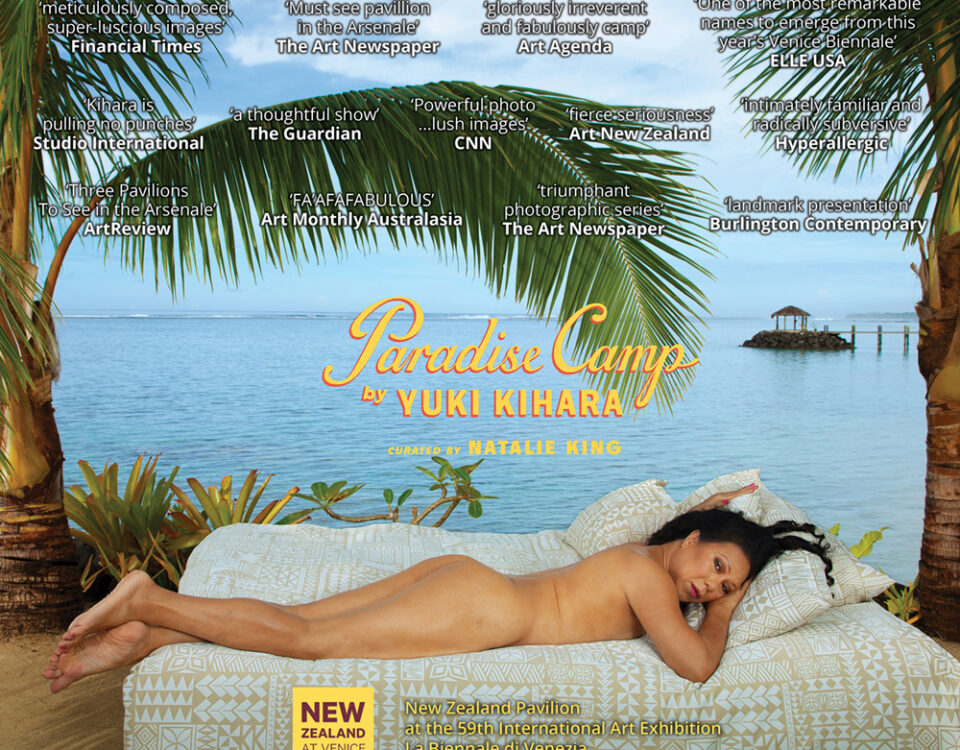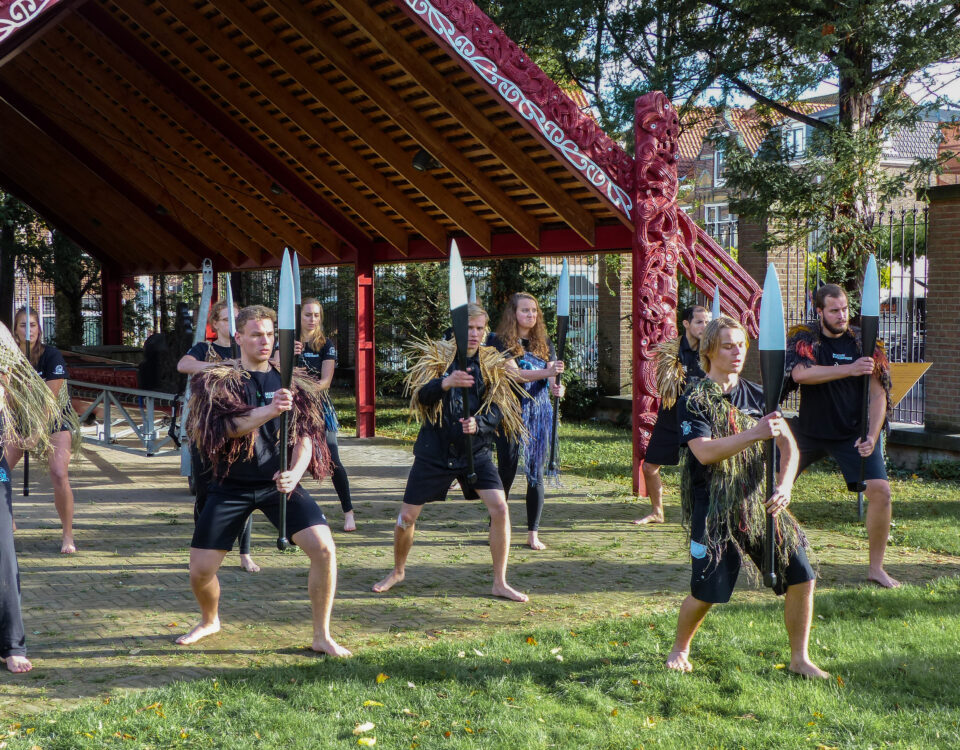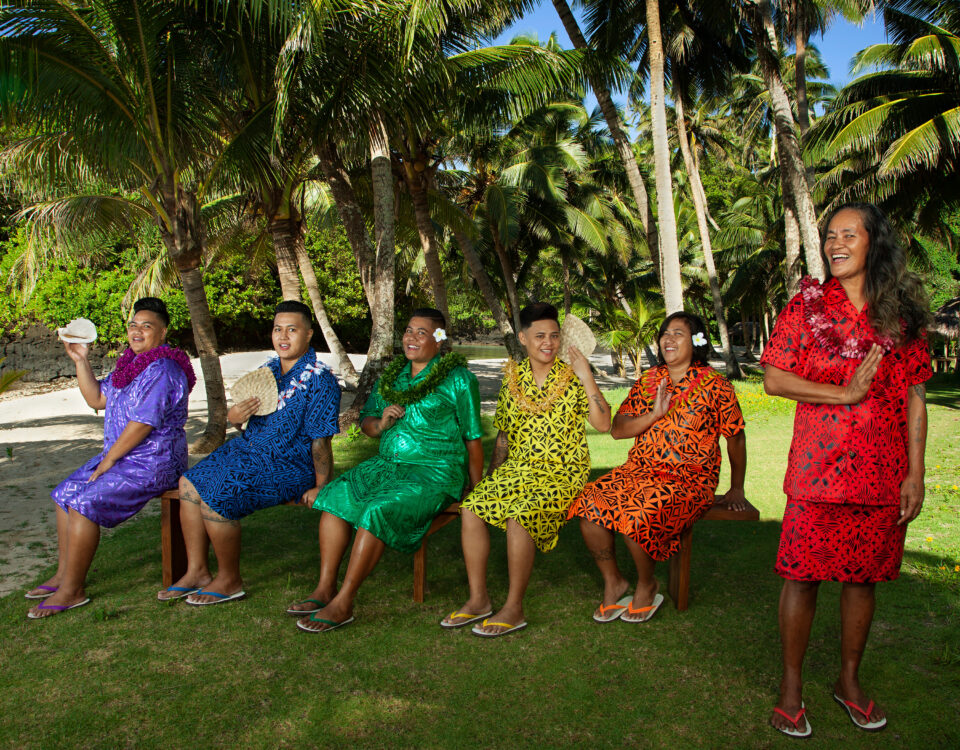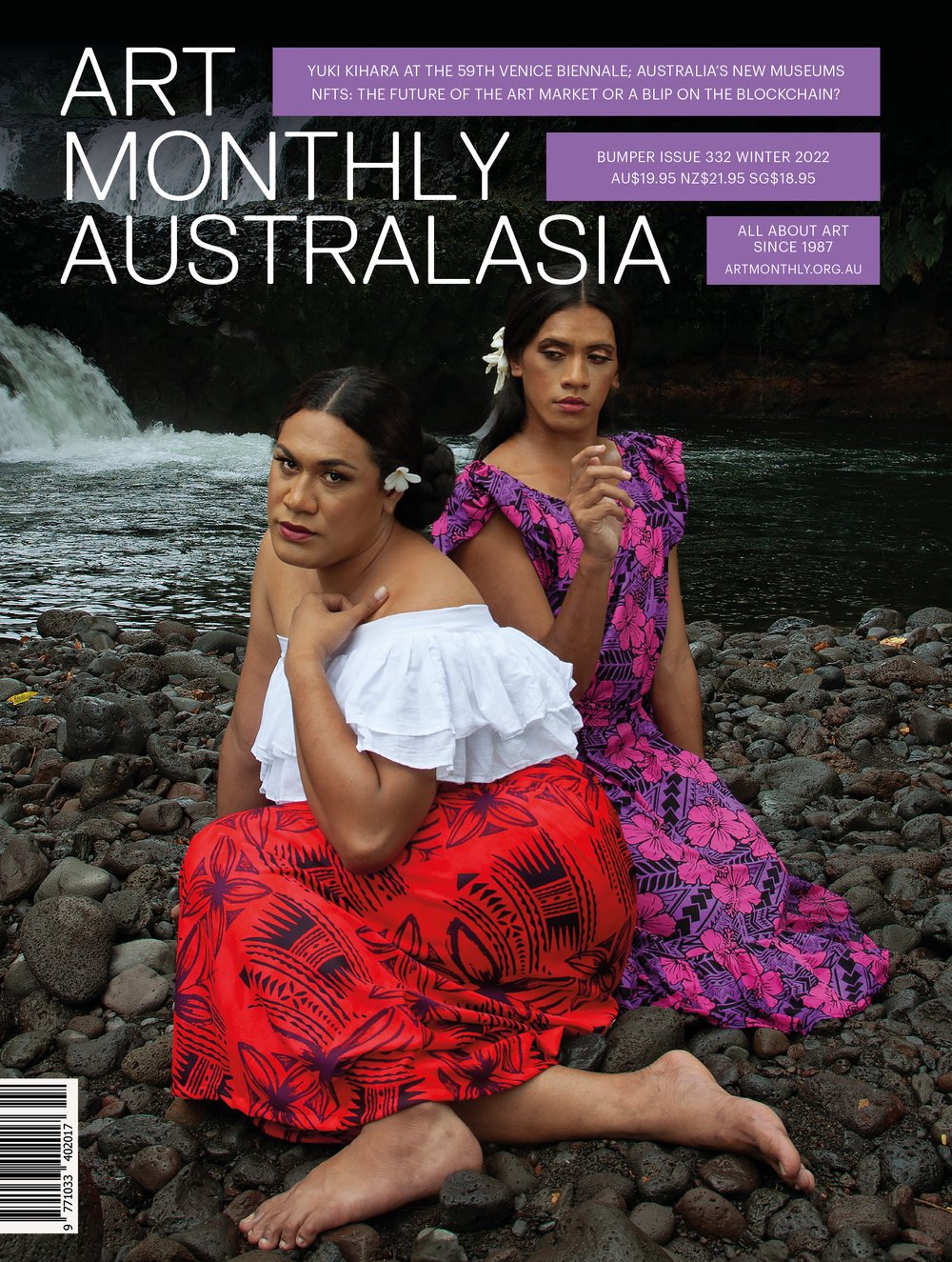
Arts Monthly Australasia: Paradise Camp
June 30, 2022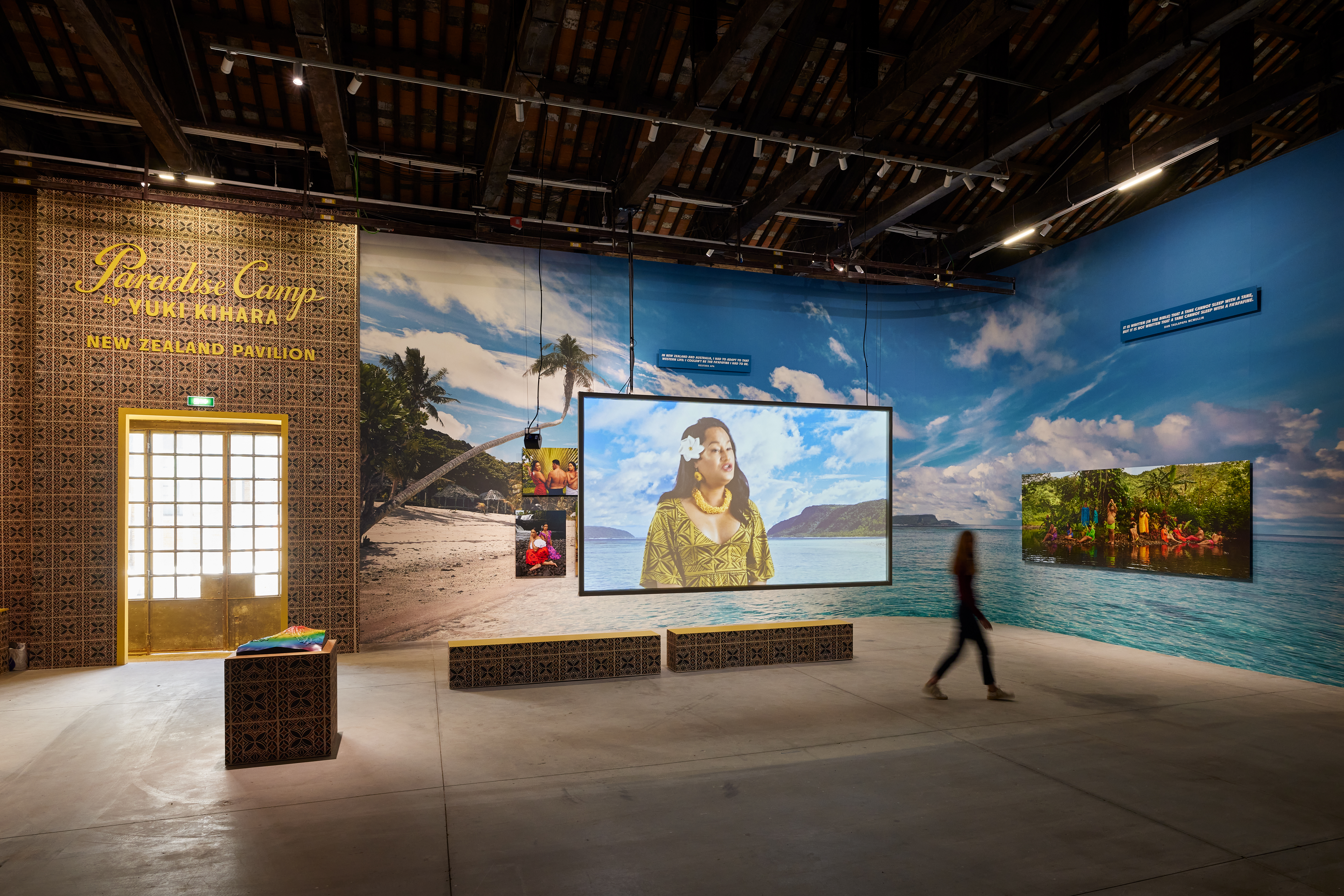
The Spinoff: Paradise Camp
June 30, 2022University of Melbourne: Enterprise Professor Natalie King on curating ‘Paradise Camp’ for the Venice Biennale

The New Zealand pavilion at the 59th International Art Exhibition – La Biennale di Venezia recently opened with artist Yuki Kihara’s ensemble exhibition, Paradise Camp, curated by Natalie King, Enterprise Professor at the University of Melbourne.
Yuki Kihara is the first Asian, Pasifika and fa’afafine (Sāmoa’s ʻthird gender’) artist to represent Aotearoa New Zealand at the Venice Biennale.
Located in the Artiglierie, a central location in the Arsenale, Paradise Camp comprises twelve tableau photographs featuring a cast of Sāmoan Fa’afafine, repurposing and upcycling paintings by the late post-impressionist French artist Paul Gauguin that are believed to have been inspired by Sāmoa.
Yuki describes Paradise Camp as an exhibition that imagines a “fa’afafine utopia – one that shatters colonial heteronormativity and makes way for an Indigenous world-view that is more inclusive to the changes of nature.”
This landmark exhibition is the result of a close collaboration between curator and artist and is Natalie King’s second curatorial engagement at the Venice Biennale. In 2017, King curated Tracey Moffatt’s exhibition My Horizon, which was the first ever solo-presentation by an Aboriginal artist at the Australian Pavilion.
Natalie King described the process of curating Paradise Camp as an “epic three-years of planning, zooming and calendar shifts.”
“La Biennale was originally deferred by one year and managing the perils of presenting at the Venice Biennale in the context of COVID was no easy task. At one point, we weren’t sure that we could proceed, but sheer determination, endless stamina, and a collective vision, helped us see a way forward.”
For King, Yuki’s work is “layered and profound, as she explores intersectionality, decolonisation and environmental crisis from a distinctly Pasifika perspective, which audiences have gravitated towards.”
Read the article in full here on University of Melbourne’s website.

